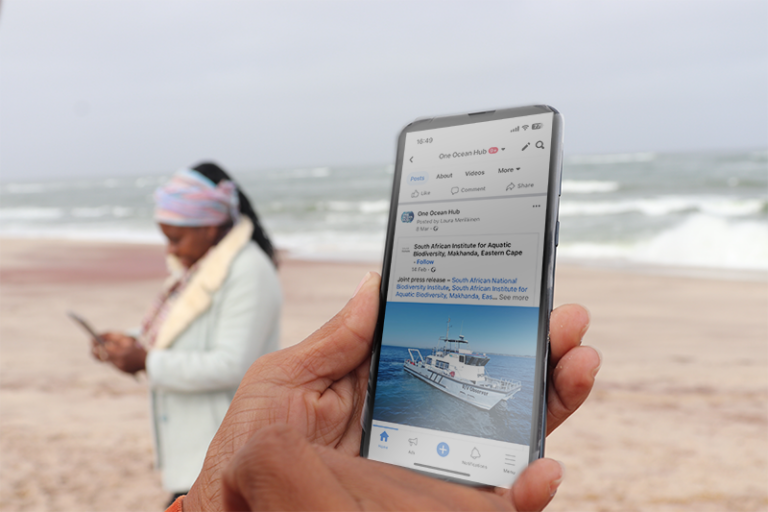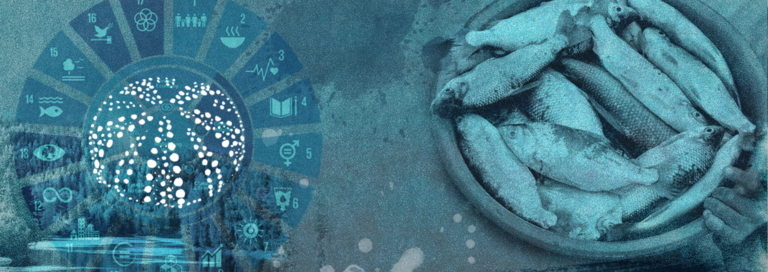Publications

Embedding the right to health within international negotiations on plastics
“Today, plastics are ubiquitous. They are found in almost every corner of life, including food packaging, medical equipment, and the clothes we wear. We know that plastics have the potential to impact numerous human rights, including the right to health. As a response to both the scale of the plastic production as well as the […]
Can social media platforms be used to foster improved environmental behaviour in recreational fisheries?
“Recreational fisheries are notoriously hard to manage, monitor and govern. This often requires managers to think “out of the box” and disregard traditional methodologies designed to manage fisher behaviour. Social media, which is an informal technological scholastic platform for the communication and dissemination of information, has become an important platform for community organisation and engagement […]
Building global research and innovation communities for equitable and sustainable international development
“In 2019, UK Research and Innovation (UKRI) launched an ambitious new approach to tackling some of the world’s most pressing challenges by investing in 12 multinational interdisciplinary Research Hubs, the scale and scope of which are a first. These challenge-led Hubs are focused on finding solutions to acute challenges which have proved resistant to change […]
A two way process – Social capacity as a driver and outcome of equitable marine spatial planning
“Although stakeholder engagement is one of the founding principles of marine spatial planning (MSP), meaningful representation of people and their connections to marine resources within marine governance is still lacking. A broad understanding of how concepts surrounding social capital and capacity is translated into MSP practice is missing. With this article, we describe detailed case […]
Designing transdisciplinarity for transformative ocean governance
“The 2030 Agenda for Sustainable Development sets out a transformative vision which has yet to be realised for SDG14 and oceans. Recognition of the “indivisibility” of the Goals and enhanced integration of ocean governance support this transformation, but require at least multidisciplinary, or probably transdisciplinary, approaches. For regions which are highly dependent on development finance, […]
Smoothed particle hydrodynamics for modelling cold-water coral habitats in changing oceans
“The importance of the growth, proliferation and longevity of reef-forming cold-water corals is paramount as they support various complex bio-diverse habitats and provide many essential ecosystem services. These cold-water coral reefs consist of layers of living coral tissue that grow on top of large masses of coral skeleton. Here, the Goldilocks Principle is used to […]
Applying coherently the human rights-based approach to small-scale fisheries for achieving multiple Sustainable Development Goals
“Small-scale fisheries operate in inland and marine waters, providing nutritious food, income, jobs, and a social and cultural identity for millions of coastal and rural communities around the globe. Small-scale fishers represent more than 90 percent of the capture fisheries workforce globally, about half of which are women (FAO, 2022a). While progress has been made […]
The complexity of evaluating, categorising and quantifying marine cultural heritage
“Despite the growing recognition that ecosystem-based management approaches to ocean governance need to recognise and integrate cultural dimensions to remain relevant, efficient, inclusive and equitable, the difficulty of meaningfully integrating these in ecosystem-based ocean management remains a challenge. This is particularly due to i) the difficulty of quantifying marine cultural heritage and cultural connections, ii) […]
Pathways to integrate Indigenous and local knowledge in ocean governance processes: Lessons from the Algoa Bay Project, South Africa
“The Introduction of this paper argues that current coastal and ocean management approaches like marine spatial planning (MSP) often do not adequately acknowledge and integrate Indigenous and Local Knowledge (ILK). This is problematic because how humans value and perceive coastal and marine resources is integrally linked to how they use and manage these resources, especially […]








